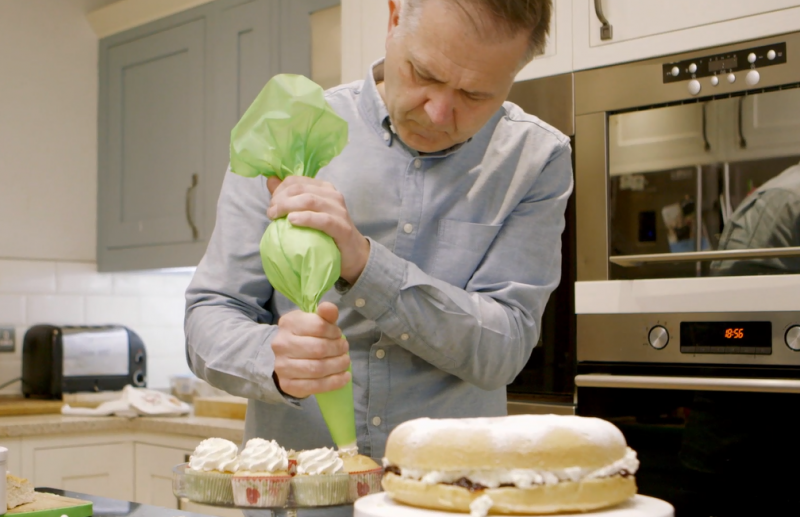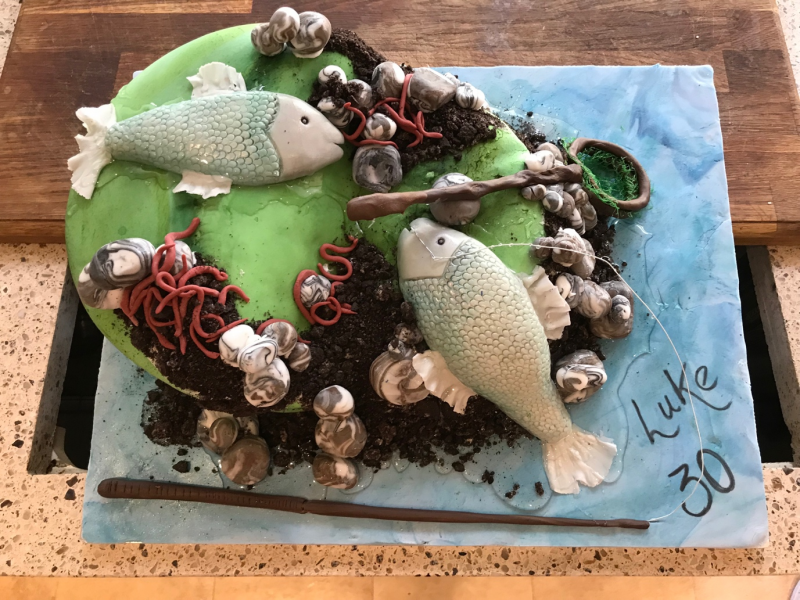Mayhem in my kitchen
With the Great British Bake Off having just kicked off, our vice-president Darren Harman-Page - a former professional baker - shares some of his thoughts about baking and the therapeutic benefits to children in a fostering family.
We hope his blog (and future recipes that Darren will be sharing with us) will inspire you to get baking - why not hold a bake sale to fundraise for us? Find out how here.
Where others may find the process of making a cake sheer terror, I am at my happiest in my kitchen. I thought I would share some of my own thoughts about baking and cake making and how I’ve combined my love for this art form with my fostering. Over the next few weeks I will also be sharing some of my favourite recipes with  our fostering community.
our fostering community.
My baking beginnings
Baking and cake-making have been part of my life since I was 11 years old, when I suddenly decided I was going to make and bake a cake. With no planning! I attempted to make my first chocolate cake, with a tatty recipe book and assembled ingredients. From this point on my pathway was set, I wanted to become a baker/confectioner. When my friends were getting bikes for birthdays or Christmas I was getting a food mixer!
When I reflect back now to my childhood, I believe now that I enjoyed the aspect of making something by hand and giving it to be enjoyed. Baking a cake, a pie, some muffins has to be the ultimate gift. They bring others together, sitting around the table for a shared experience with a nice cup of tea.
Fostering and food
Fostering has been a huge part of my family’s life for 24 years. Over that time we have, like all carers, developed skills and strategies that help children and young people to feel a little less anxious when they first come to join our family.
We have found food and eating can often evoke very strong feelings and behaviours from the children we are caring for – and this can make meal times challenging. Often a child will continuously choose the same foods time after time for breakfast, lunch and dinner giving them some control of this aspect of their life.
As foster carers the information we initially receive about the children’s pasts can be rather scant. Using our skills, experience and expertise we are able to help the traumatised children move forwards with small steps to make changes. Often their early experiences can include not being fed regularly and scavenging for foods from bins to survive or a diet that consisted of only junk foods. Moving into a fostering family is a confusing time for the children moving from their norm to a new environment, with new people, new culture and with different rituals. Making meals times as stress-free as possible is very important, working with them and introducing things slowly and at a comfortable pace for the child.
The benefits of baking
Baking and involving the children in the process of preparation and creating a meal I believe has a therapeutic benefit to their wellbeing. Children can become completely absorbed in the process of creating a cake or a batch of scones, possibly putting aside their worries for a very short time. Baking together can also provide opportunities for conversation as you work together on a shared activity.
Assisting a child to put together the various ingredients and equipment, making a mess and having some fun, tasting and feeling the different ingredients – this may be the first time that the child has experienced making something and working with an adult in a positive way. There is no pressure for the child to join in and take part, instead they can observe and taste the effort of our baking.
Pizza time
We looked after one young person, aged 13, who struggled with her emotions and with her past. Baking provided her with an outlet to express some of her feelings. Over a period of time her confidence grew, and she is now competently able to go into a kitchen, select the ingredients and equipment and produce a dough and make toppings for a fabulous pizza. The pizza is quite often not for them but for others to share and enjoy. When she was unable to cope with her feelings, she struggled to ask for affection, turning to the mixing bowl as an outlet.
Baking is not often thought of as a therapeutic intervention for children. I have found that adults can access culinary therapy as an alternative to other types of therapy, but children can’t. Baking with children is not a new thing – especially for many of you – but maybe it’s something you could try (pick up again?) as a regular multisensory activity.  Maybe it will have a positive effect on the whole family’s mindfulness.
Maybe it will have a positive effect on the whole family’s mindfulness.
Ready, steady, bake!
Holding a bake sale is a great way to bring together friends, family and colleagues to enjoy some sweet treats while raising funds to help make a difference to fostered children and young people. Find out more.
You can find out more about Darren's fostering journey in this video.





